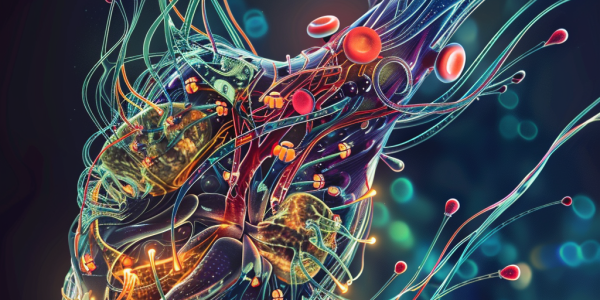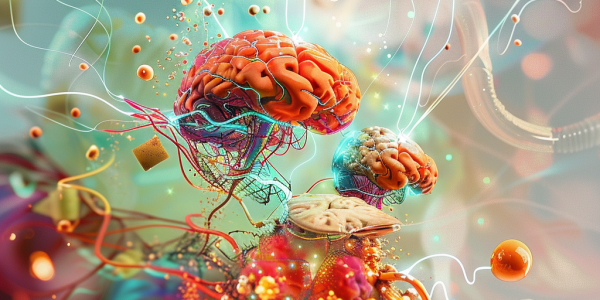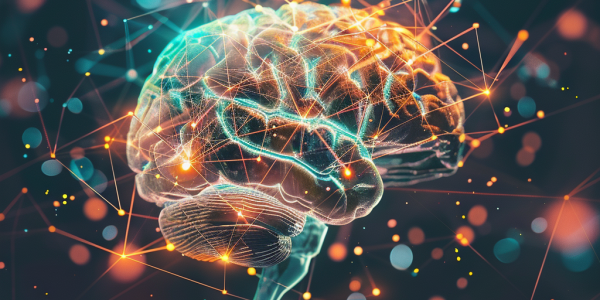Heart Health Benefits of Nuts and Seeds
Discover the heart health benefits of nuts and seeds! Incorporating nutrient-dense options like hemp seeds, almonds, walnuts, flaxseeds, and chia seeds into your diet can significantly reduce the risk of cardiovascular diseases and enhance overall heart function. Learn how these superfoods can support your heart health today!
New Method Promises Early Detection of High-Altitude Brain Injury
A groundbreaking study published in Angewandte Chemie International Edition reveals a new method for early detection of high-altitude hypoxic brain injury (HHBI). Researchers from Zhejiang University utilized advanced in vivo electrochemistry to monitor brain oxygen levels, providing critical insights into HHBI risk for climbers and residents in high-altitude areas. This innovative approach could revolutionize altitude sickness management, enabling timely interventions and improved health outcomes.
10 Brain Workouts to Enhance Memory and Concentration
Discover 10 effective brain workouts to boost memory and concentration. From meditation and mindful breathing to memory games and physical exercise, these techniques can enhance cognitive function and improve focus. Incorporate these activities into your daily routine for better mental clarity and overall brain health.
Breakthrough Study Reveals Diversity in Zebrafish Intracardiac Nervous System
A groundbreaking study published in Nature Communications reveals significant insights into the intracardiac nervous system (IcNS) of zebrafish, highlighting its molecular, cellular, and functional diversity. This research enhances our understanding of the heart’s nervous system, crucial for cardiovascular health, and identifies diverse neuronal types that play a vital role in cardiac rhythm regulation. These findings open new avenues for future research and potential therapeutic approaches for heart conditions.
Air Pollution’s Disturbing Effects on Brain Health
Recent studies reveal a troubling link between air pollution and brain health, with 99% of the global population exposed to unsafe levels. Pollutants can damage neurons and alter brain communication, leading to increased anxiety, depression, and developmental disorders in children. The elderly are also at risk for cognitive decline and diseases like Alzheimer’s. Urgent action is needed to improve air quality through public transportation, electric vehicles, and green spaces to protect brain health.
Breakthrough Discovery Reveals Brain Circuit Controlling Voluntary Breathing
Scientists at the Salk Institute have uncovered a specific brain circuit that controls voluntary breathing, providing insights into the link between breathing patterns and emotional regulation. This groundbreaking research, published in Nature Neuroscience, reveals how the frontal cortex influences automatic breathing functions, paving the way for new therapeutic interventions for anxiety and stress management. Understanding these mechanisms enhances our knowledge of practices like yoga and mindfulness that promote emotional well-being.
Discovery of Neuronal Circuit Governing Appetite Offers New Insights into Obesity
Recent research reveals a three-part neuronal circuit in mice that regulates appetite, highlighting the biological factors influencing eating behavior. This discovery could reshape our understanding of obesity, shifting the focus from personal choice to physiological differences. As scientists explore the potential existence of similar circuits in humans, new strategies for addressing overeating may emerge, emphasizing the need to understand the neural mechanisms behind hunger and satiety.
Breakthrough in Alzheimer’s Research: Targeting Necroptosis to Prevent Nerve Cell Death
Researchers at KU Leuven and VIB have made a groundbreaking discovery in Alzheimer’s research, revealing the role of necroptosis in nerve cell death. This study suggests that specific inhibitors could prevent nerve loss and improve memory in mouse models, shifting the focus from amyloid plaque removal to protecting nerve cells. With over 55 million people affected globally, this research could pave the way for innovative Alzheimer’s therapies that address the disease’s underlying mechanisms.
The Evolutionary Benefits of Forgetting: A Cognitive Perspective
Forgetting is a natural cognitive process that serves essential functions in memory retention, creativity, and emotional regulation. This article explores the evolutionary advantages of forgetting, highlighting how it enables us to filter irrelevant information, enhances adaptability, and supports mental well-being. Understanding the mechanisms behind forgetting can shed light on its role in effective decision-making and problem-solving.
Revolutionary Ultrasound Device Offers New Hope in Addiction Treatment
Recent advancements in medical technology reveal a groundbreaking ultrasound device aimed at combating addiction. This innovative helmet-like device emits high-frequency ultrasound waves to target brain regions linked to addiction, offering a non-invasive treatment option. Initial studies suggest it may recalibrate neural pathways, reducing cravings and compulsion. As research progresses, this technology could revolutionize addiction treatment and pave the way for therapies addressing various mental health conditions.










